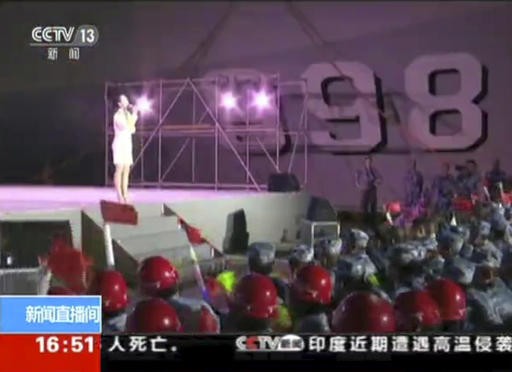Popular Reads
Top Results
Can't find what you're looking for?
View all search resultsPopular Reads
Top Results
Can't find what you're looking for?
View all search resultsUN arbitration of South China Sea spat between Philippines, China: A roundup
Change text size
Gift Premium Articles
to Anyone
A
United Nations arbitration court is expected to issue a ruling in the coming weeks on a long-standing maritime dispute between China and the Philippines. Manila had initiated the proceedings in January 2013, arguing that Beijing's claims over much of the South China Sea violated UN conventions.
The spat has become a semi-crisis in relations between China and the United States, a Philippine ally, threatening the larger peace and stability in the region.
The UN Permanent Court of Arbitration, which agreed to hear the case in October 2015, is expected to rule in favor of Manila. While the ruling is not binding, experts say it will have the potential for raising tensions, while not resolving the decades-old underlying sovereignty disputes.
Here's a round up of the dispute so far:
THE SOUTH CHINA SEA'S IMPORTANCE
The 3.5 million sq km sea is believed to hold rich reserves of oil, natural gas, fisheries stocks, and hosts lanes for half the world’s commercial shipping. It is claimed in parts or wholly by China, the Philippines, Vietnam, Brunei, Malaysia and Taiwan. Many of the claims overlap.
CHINA'S CLAIM
China claims almost all of the South China Sea, which it delineates on its map with a "nine-dash line".
The UN Convention on the Law of the Sea (Unclos), of which China is a signatory state, gives countries exclusive economic zones of 200 nautical miles, or 370km, from their coasts. But China says its claim stems from historical use of the sea by Chinese vessels as far back as 2,000 years ago.
Beijing has been shoring up its position through land reclamation works. A Pentagon report released in May estimated China has reclaimed 1,300ha of land around the Spratly Islands, also claimed by the Philippines, over the past two years. The Chinese have also built massive structures, including radar systems and airstrips, on the reclaimed reefs and islets.
Beijing, on the other hand, is wary of growing US attention on Asia and US forays into the sea, including sailing warships close to reclaimed islands.
China has maintained that it will not participate in the UN arbitration proceedings and will not recognize the ruling. It says Manila's case relates to an issue of territorial sovereignty, over which the tribunal has no jurisdiction, instead of the interpretation or application of Unclos.
THE PHILIPPINES' CLAIM
The country claims the Spratly Islands, known as Nansha by China. The group's main Mischief Island sits less than 240km off the Philippines’ Palawan Island and some 900km from China’s Hainan Island.
The Philippines also lays claim to the Scarborough Shoal (known as Huangyan Island in China), which is a little more than 160km from the Philippines and 800km from China.
Both the Spratlys and Scarborough Shoal are also claimed by China.
THE US POSITION
The United States has described the South China Sea issue as one of its vital national interests. Washington fears Beijing is seeking to impose military controls over the entire area, which could curtail the unfettered use of international waters and air space by the US military. It also baulks against an attempt by another strong state to bully America's smaller allies in the region.
US military planes and ships have conducted "freedom of navigation" sorties near the Spratlys and Scarborough Shoal in recent months to underscore Washington's position, much to China's displeasure.
OTHER CLAIMANTS AND COUNTRIES
Taiwan, which China sees as a renegade province and is not recognized as an independent state by most of the world, has intervened in the UN arbitration case in April, to press its own claim.
Vietnam, Malaysia, Indonesia have dispatched representatives to the hearings. So has Japan, which is embroiled in its own territorial dispute with China in the East China Sea. Vietnam has provided a submission in support of the Philippines’ arguments that the court has jurisdiction and asked the tribunal to pay due attention to Vietnam's legal rights and interests.
Such moves indicate that some of these countries might also take China to court in future.
The European Union has said that China should respect the ruling.
China's Foreign Ministry, meanwhile, has claimed support from countries as diverse as Cambodia and Yemen.







